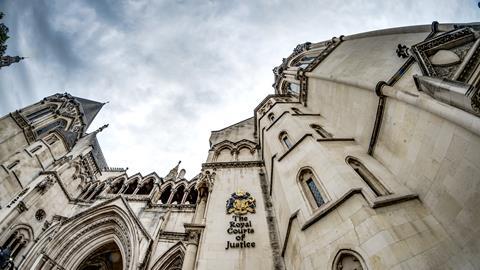A Court of Appeal judgment has given guidance to judges ‘facing difficulties arising out of non-attendance by trial counsel’ after finding a circuit judge was wrong to stay proceedings over the lack of prosecuting counsel.
The lady chief justice's ruling in R v Katie Ng & Anor centres on a criminal trial which was subject to a number of delays after a hearing in April 2022 where the defendants denied the charges.
Nearly two years on, an abuse of process application was made in March 2024 where both defendants argued ‘the failure of the CPS to secure the attendance of prosecution counsel’ amounted to an abuse of process. The judge stayed the indictment.
However giving the lead judgment in the appeal, Lady Carr said, although she and Mr Justice Pepperall ‘sympathise with the judge’s frustration at the non-attendance of prosecuting counsel’ there were ‘obvious flaws of fact and principle’ in his decision.
Finding ‘no proper justification for the exceptional step of a stay for abuse of process’, Lady Carr said: ‘There was a failure to carry out the necessary balancing exercise. Rather, the judge’s approach was to focus on the respondents and to punish the CPS in the hope that lessons would be learned.
‘What he should have done is to balance the public interest in ensuring that those charged with crimes should be tried against the competing public interest in maintaining confidence in the criminal justice system and not giving the impression that the end will always be treated as justifying any means.’
Turning to the wider issue of delays, the judgment says the court ‘retains the ability to manage proceedings, but must do so in the interests of justice’ and ‘must manage its work so that the system functions in the best way possible’. It adds: ‘The shortage of advocates to conduct criminal work in the Crown court is not a problem which the court can solve. It is for the professions to recruit, train and retain members and it is for the executive, and other agencies engaged in this process, to take steps to ensure that the need for Crown court advocacy is met.
The judgment highlights the obligation of advocates and their clerks to communicate with the court promptly.
Considering when prosecuting counsel are not available for trial, the lady chief justice says: ‘Those who have suffered harm from the commission of a crime should see their desire for justice vindicated. The court should prevent that from happening only as a last resort, and only when the interests of justice, properly balanced, require that outcome.
‘It is to be hoped that failures to attend trials by advocates in the most serious cases will be rare and, where they happen, explicable by things like sudden illness rather than double booking. It is almost inconceivable that such cases will be terminated by the refusal of an adjournment simply on the ground that there is no prosecution advocate.’
The appeal was allowed and the stay reversed as it was ‘based on mistakes of fact; involved an error of law and principle and was a ruling that it was not reasonable for the judge to have made’.
The criminal case will now be listed as a fixed trial on the first available date.




























No comments yet